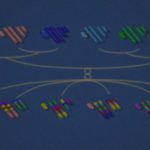Lien vers Pubmed [PMID] – 36539803
Lien DOI – 30710.1186/s12974-022-02668-8
J Neuroinflammation 2022 Dec; 19(1): 307
Zika virus (ZIKV) infection at postnatal or adult age can lead to neurological disorders associated with cognitive defects. Yet, how mature neurons respond to ZIKV remains substantially unexplored.The impact of ZIKV infection on mature neurons and microglia was analyzed at the molecular and cellular levels, in vitro using immunocompetent primary cultured neurons and microglia, and in vivo in the brain of adult immunocompetent mice following intracranial ZIKV inoculation. We have used C57BL/6 and the genetically diverse Collaborative Cross mouse strains, displaying a broad range of susceptibility to ZIKV infection, to question the correlation between the effects induced by ZIKV infection on neurons and microglia and the in vivo susceptibility to ZIKV.As a result of a delayed induction of interferon beta (IFNB) expression and response, infected neurons displayed an inability to stop ZIKV replication, a trait that was further increased in neurons from susceptible mice. Alongside with an enhanced expression of ZIKV RNA, we observed in vivo, in the brain of susceptible mice, an increased level of active Iba1-expressing microglial cells occasionally engulfing neurons and displaying a gene expression profile close to the molecular signature of disease-associated microglia (DAM). In vivo as well as in vitro, only neurons and not microglial cells were identified as infected, raising the question of the mechanisms underlying microglia activation following brain ZIKV infection. Treatment of primary cultured microglia with conditioned media from ZIKV-infected neurons demonstrated that type-I interferons (IFNs-I) secreted by neurons late after infection activate non-infected microglial cells. In addition, ZIKV infection induced pathological phosphorylation of Tau (pTau) protein, a hallmark of neurodegenerative tauopathies, in vitro and in vivo with clusters of neurons displaying pTau surrounded by active microglial cells.We show that ZIKV-infected mature neurons display an inability to stop viral replication in link with a delayed IFNB expression and response, while signaling microglia for activation through IFNs-I secreted at late times post-infection. In the brain of ZIKV-infected susceptible mice, uninfected microglial cells adopt an active morphology and a DAM expression profile, surrounding and sometimes engulfing neurons while ZIKV-infected neurons accumulate pTau, overall reflecting a tauopathy-like phenotype.




